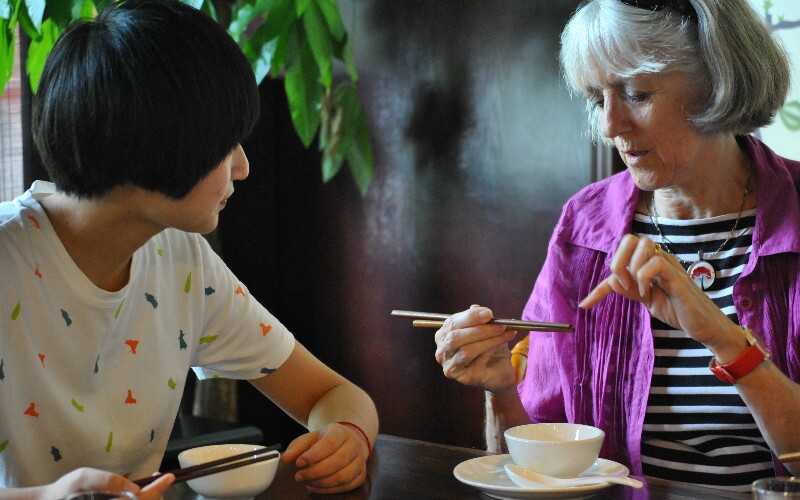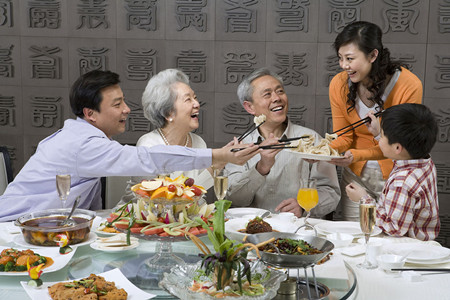20 Excellent Ways To Explore the Best Local Eats in China
Wiki Article
Top 10 Shopping Tips At Markets On The Streets Of China
1. Early morning markets tend to offer good deals in the early morning hours as vendors set up.Pro: Shopping early can result in better bargaining and an increased selection of choices.Cons: This requires you to rise early. Not everyone has the time.
2. Bring CashCash payments are accepted at most street markets however mobile payment options like WeChat Pay or Alipay have been getting more popular.The benefit of cash payments is that it makes transactions go more smoothly and also gives you negotiating leverage.Con: Carrying cash increases the chance of losing it or theft in crowded areas.
3. Learn Basic MandarinBe familiar with phrases like "Zhege qian duoshao?" (How Much is this?) The ability to use phrases like "Zhege duoshao ba" ("How much is this?") or "Pianyiyidian ba?" (Can you lower the price?) can aid in communicating effectively.Pro: Creates trust and respect for vendors.Pro A limited vocabulary could be a cause of confusion.
4. Make sure you inspect your items carefullyTip: Check items carefully for any defects or inconsistent items, especially electronic equipment, clothing and crafts.Pro It's about getting what you pay for, and you don't have to worry about being disappointed.Pros: Simple to use, but it could cause frustration to sellers.
5. Shop with ConfidenceTips: Never be afraid to negotiate, as it's a common practice in market stalls. Aim to cut the price by 50-70% in the beginning.Pro: Bargaining offers the potential to significantly reduce cost.Pro: It's intimidating to those who aren't used to it.
6. Watch out for CounterfeitsWatches, electronics and bags that bear a brand name could be fake.Pro: There is no need to squander money on cheap imitations.Pro: Genuine products may be difficult to locate and cost more.
7. Observe Local CustomsTips - Change your strategy based on how locals shop and negotiate.You'll blend seamlessly and avoid errors.Con: It may take some time to master the habits.
8. Keep Valuables SecureTip: Keep your wallet and phone in a pocket or anti-theft bag to avoid pickpockets at busy markets.Pro: Lowers the chance of theft in busy areas.Cons: Additional precautions could feel as if they are limiting.
9. Test Before You Buy (Food)To ensure you're receiving the highest quality product Many food stores provide free samples of snacks and dried products.Pro Tip: Make sure you are satisfied with the freshness and taste of your food.Con: After providing you with the opportunity to try their product, some sellers may push you to make an order.
10. Know the Market's GoalYou can find certain products in each market, such as souvenirs and antiques in Beijing's Panjiayuan or Shanghai's Yuyuan Market. You can study your objectives and match them to the market you're going to.The time you'll save and the subject matter to which you narrow your attention is an enormous advantage.Con: Limits spontaneity if you stick strictly to your studies.
Pros of Shopping in Street MarketsUnique Finds: There are many things aren't found in traditional stores, such as handmade crafts and local food items.Street markets are usually less expensive than shopping malls and other shops.Cultural Experience: Engaging in discussions with vendors and exploring local markets is one method to get immersed in the culture of the area.The market has a broad range of goods, including clothing, food and souvenirs.Cons of Shopping in Street MarketsCounterfeit products: The likelihood of spotting copyright goods or inferior quality products is very high.The crowds at markets can be extremely crowded, especially during weekends and holidays.Vendors that employ aggressive strategies: This can overwhelm you.No Returns Most purchases are final and there is very little opportunity for refunds or exchanges.You can stay clear of common pitfalls by heeding these suggestions and being prepared. Have a look at the most popular the ultimate guide to Chinese cuisine for more info including Chinese cuisine you need to try, top Chinese food experiences, regional Chinese cuisine highlights, culinary wonders of China, explore the riChness of Chinese food, Chinese food you must try, culinary experiences across China, culinary tours of China best cities, Chinese food culture guide, explore local Chinese cuisine and more.

Top 10 Tips On Ritual Practices When You Visit Famous Temples In China
1. It is important to adhere to the temple's rules and customs. Make sure you are careful when performing rituals and entering sacred areas.Pro: Represents respect for local cultures and sacred spaces.Con: It's a challenge to learn the rules of temples that have intricate rituals.
2. Be quiet and respectful.Tips: Keep your demeanor at a level and be quiet when you perform ceremonies, or even in the temple. Avoid talking or laughing too loudly.Pros: Creates reverence and peace between worshipers.Con: Silence can be uncomfortable if you don't understand the local customs or the environment.
3. Dress sensuallyTip: Dress respectfully such as long pants dresses, or skirts and be careful not to expose your clothing. Some temples have wraps or scarfs to protect arms.Pro: Shows respect to sacred space and worshippers.Con: You may need to do some additional preparation or attire if you're visiting during a hot summer day.
4. Perform the Ritual of OfferingsTip: If you wish to take part in an offering (such as incense or fruits) be patient and wait for others to complete their rituals and follow the instructions of the locals.Pro: Shows respect for the sacred rituals and will aid you in blending into the customs.Con: If the ritual is new to you it may be difficult to take part.
5. Do not interrupt the practice of meditation or prayer.Be careful not to interrupt worshippers when they're meditating or praying. While other people are occupied with spiritual practices, refrain from taking pictures or having conversations.Pro: Demonstrates cultural respect and helps create a tranquil and reverent atmosphere.Con: You might be tempted to record memories for yourself, but doing so might be a bit unwelcome.
6. Take part in the Lighting of IncenseTips: Lighting incense is an everyday ritual in Chinese temples. Incense is an excellent method to show your gratitude for the gods. Hold the sticks of incense tightly with both your hands.Pro: This indicates that you value the temple tradition and actively participate in its practices.Con: Incense may be difficult to manage for certain travelers, and can result in a lack of respect.
7. Avoid touching sacred statues or objectsTip: Avoid touching sacred statues or temple items unless you are specifically requested to.Pro: It preserves the sanctity and reverence of the temple.Con: Can cause confusion if you're not aware of temple boundaries.
8. Be Aware Temple HierarchyTips. In some temples, you will find different levels or sanctity. Be aware of where you go. Avoid walking the vicinity of altars or statues that are sacred.Pro: You should maintain the appearance of the temple and be respectful of it. This will show that you have a thorough understanding of the traditions of the temple.Cons The hierarchical structure might not always be logical therefore it requires more effort to figure out what's acceptable.
9. Keep Offerings HumbleTip: When bringing offerings (flowers and fruits or money) ensure that they are modest in nature and conform to the customs of your area. The extravagant or expensive gifts could be considered inappropriate.Pro: Demonstrates humility and aligns with the local culture.Cons: You may not be sure what type is most appropriate for you without guidance from a local expert.
10. You are invited to attend Temple Events When InvitedTip: Some temples have special days, services or rituals. If you're invited to participate be respectful and by following the people.Pro: Engages you deeper in the temple experience and links you to local cultural traditions.Con Cons: Participating in rituals that are unfamiliar may feel awkward or uncomfortable if you don't know the correct procedure.
Pros to Observing Rituals Practiced in TemplesParticipating in rituals will aid in understanding Chinese culture and tradition.Respectful Interaction. If you engage and observe with respect, you can create relationships that are beneficial for the locals as well as temple staff.Participating in spiritual and cultural practices can enrich the life of a person.Temple rituals are a great method to create memories.Cons of observing ritual practices in templesRituals are often unfamiliar and confusing to first-time visitors and can cause confusion or even mistakes.Cultural Mistakes: If done wrong, it can cause offence or miscommunications.Language Barriers: Because of the differences in languages, it can be difficult to comprehend instructions and ritual significance.Physical discomfort Certain rituals may be physically demanding, such as sitting or bowing.If you observe these suggestions and keep in mind local customs and traditions You will be able to visit China's famous Temples and engage in their spiritual practice without inflicting any offence. See the recommended explore the riChness of Chinese food for website tips including discover the tastes of China cities, a culinary journey through China, China flavorful food culture, discover China culinary delights, China culinary heritage, savoring the best of Chinese cuisine, a deep dive into China food culture, the best food destinations in China, the ultimate guide to Chinese cuisine, explore China riCh food history and more.
